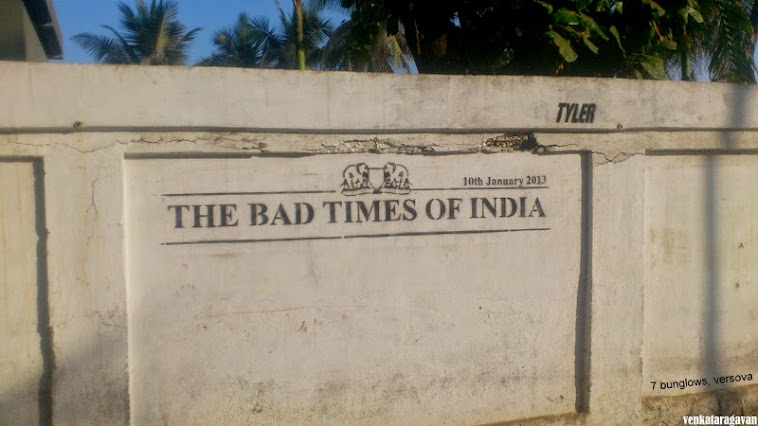Part three of most stories are mind numbingly boring. The
chief selling point is the apparent progression of the story or the
apparent introduction of plot changing characters. This blog doesn’t employ a PR agency to moderate mass messaging. Hence the blow of boredom is not
going to be cushioned..
By 1967,where this part takes off, the congress was all but uprooted from Tamil nadu.
This, though irrelevant to this story, holds some significance to the readers
of this blog who can leave this passage right now and read up briefly, on the fascinating
history of the madras presidency and later the madras state. The links may really be interesting and you might end up forgetting that you were directed to those pages from here.
So, I beseech you to be lazy to click on those links and to continue with the next paragraph.
Before getting started... what is a response to a rejoinder called? God only knows a? ok.
------------------------------------------------------------------------------------------------------------------------
Madras welcomed guests with open arms and soon businesses were set up. There were a lot of people from Andhra, Kerala and some from Karnataka too.The Marwaris gheroed Sowcarpet. One wonders if Sowcarpet was two deg. cooler than the rest of Chennai(Chinnai is hot yaar). History is not very clear about this.
In time, many Andhra messes crop up in lacalities with considerable Telugu poppulation serving up piping hot Andhra meals. The amount of rice served in these places per day, if stacked one behind the other at one rice thickness would… hmmm… ok this was really before the time of internet so placing an absurd comparison on this is beyond me… let us say it would cover 2-3(say) foot(d) ball fields or something. The essence of the statement though, is that large quantities of rice were served.But, this was not the novelty; the novelty of the place was finding more green chillies than vegetables in the various broths served by them and the Gunpowder, silently lurking just out of eyesight.
------------------------------------------------------------------------------------------------------------------------
Madras welcomed guests with open arms and soon businesses were set up. There were a lot of people from Andhra, Kerala and some from Karnataka too.The Marwaris gheroed Sowcarpet. One wonders if Sowcarpet was two deg. cooler than the rest of Chennai(Chinnai is hot yaar). History is not very clear about this.
In time, many Andhra messes crop up in lacalities with considerable Telugu poppulation serving up piping hot Andhra meals. The amount of rice served in these places per day, if stacked one behind the other at one rice thickness would… hmmm… ok this was really before the time of internet so placing an absurd comparison on this is beyond me… let us say it would cover 2-3(say) foot(d) ball fields or something. The essence of the statement though, is that large quantities of rice were served.But, this was not the novelty; the novelty of the place was finding more green chillies than vegetables in the various broths served by them and the Gunpowder, silently lurking just out of eyesight.
While this Andhra mess movement grew, offering a spicy
alternative to the pretty bland local cuisine, the other messes like the ‘erode
kurinji mess’ and the ‘namakal nayagan mess’ started losing its patrons. The
cold war had fizzled out by now, but the slow weapon deployed by Srinivas was
working with cold precision. It was hurting in a way not originally designed for;
but, it was hurting.
The Dravidian movement was at its zenith and anything non Tamil
was met with, err… Tamil. The Tamil mess uzhiyar sangam (TMUS) (Tamil mess
employees union) approached the Chief Minister with a petition banning Andhra
messes from Tamil Nadu. “Andhra is also north Indian, anything north of Chennai
is north India” reasoned a visibly tempestuous Sathiyamoorthy.
The CM heard the petition out and is said to have remarked "andhra mess a? ithu enna vengayam" (what Andhra mess?? onions!!)
The CM heard the petition out and is said to have remarked "andhra mess a? ithu enna vengayam" (what Andhra mess?? onions!!)
One more note: Though it is
puzzling, this random reference to onions; it is a popular phrase first used by one of the then CM’s mentor ‘Periyar’. Used with the right intonation and swagger it can
be remarkably dismissive of the topic in discussion.
The CM’s aide though, one Mr Chokkalingam, was a shrewd fellow. He understood that there were already too many protests to organize, quell and ghost direct. This issue cannot become another one of those. He walked home that day, contemplating his move against this new problem at hand.
“What do I do? What do I do?”
Onions!! the CM’s voice played in his head.
“Hehe… onions…Wait... onions… Why not?” He got up. Sambar shall be fought
with sambar, kootu with kootu, poriyal with poriyal (various constituents of a
Tamil cuisine). He recalled his wife Meenakshi’s first attempt at cooking.
It had been a disaster. What had started out to be an edible broth had turned
out so spicy that he had playfully named it "Kara Kozhambu" (through running nose
and tears). That ‘kara kozhambu’ had onions which were small islands of solace in the swelttering sea of orange. It was wild. but like some wild things, delightfully so, and with a potential to take on the formidable foe.
Mr. Choks slyly introduced a tempered version of Meenakshi’s recipe at strategic hangout spots. The Kara Kozhambu, a devilish
concoction of spices magically burned tongues while putting a smile on the
crying faces. The play of various emotions on the face was an added bonus for the cook to
watch.
Strangely, this was followed by a lot of culinary experimentation on both sides. A lot of cuisines were ‘Indianised’. Slowly gobi
machurian, originally from a place near Gobi (not gobichettypalayam), chicken
65, maggi noodles, etc. were included as a part of the 'cuisine'. A
period of happiness and contentment followed.
But… things change... part 4...
